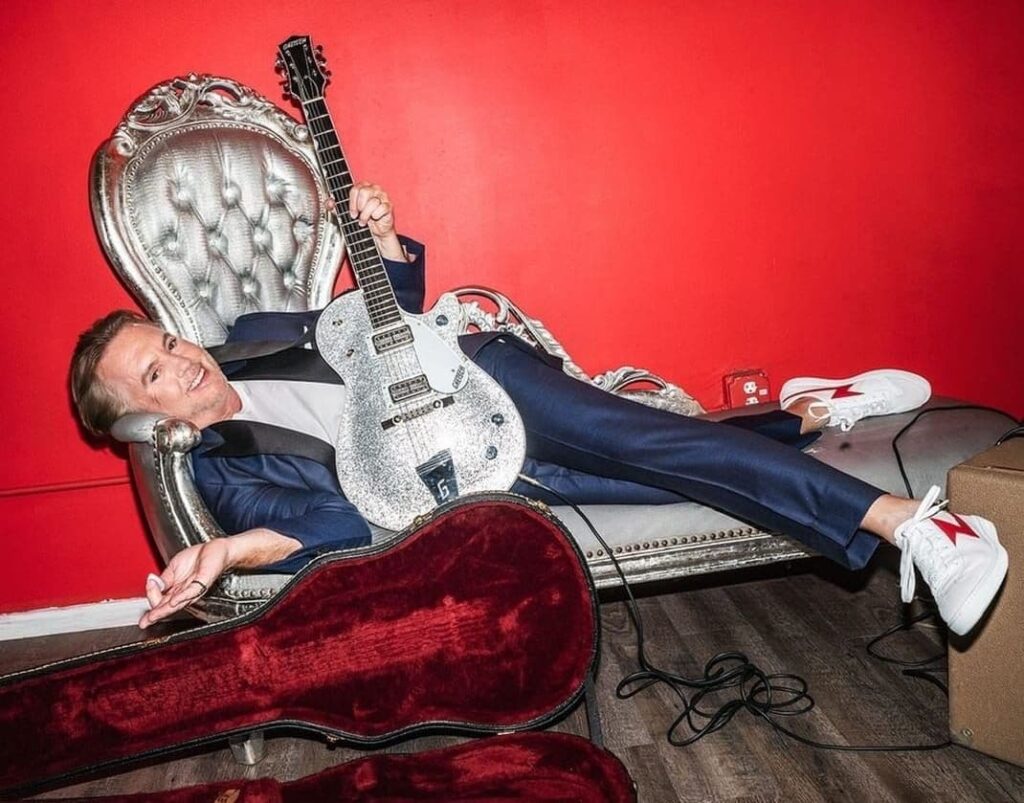
When a Pop Idol Tries to Shed His Teen-Dream Image and Embrace the New Wave Vibe
The defiant anthem of gender fluidity and cultural rebellion gets a surprising, late-career makeover from a former teen idol.
There are certain songs that, once recorded, seem to belong entirely to the original artist. David Bowie’s 1974 glam-rock classic, “Rebel, Rebel,” with its iconic, simple, yet utterly infectious guitar riff and its boundary-pushing celebration of the androgynous spirit (“You’ve got your mother in a whirl / She’s not sure if you’re a boy or a girl”), is certainly one of them. For many of us who grew up with the sounds of the 70s and 80s, the idea of anyone else tackling it, especially a former heartthrob famous for bubblegum pop, felt almost sacrilegious. And yet, in 1980, Shaun Cassidy—the star of The Hardy Boys/Nancy Drew Mysteries and the voice behind massive teen hits like “Da Doo Ron Ron” and “That’s Rock ‘n’ Roll”—took up the challenge, releasing his rendition on his fifth and final studio album, Wasp.
The album Wasp, and the single “Rebel, Rebel,” marked a watershed moment, an audacious attempt by Cassidy to shed the constraining mantle of teen idol and be taken seriously as a new-wave artist. The transition from pin-up sensation to rock ‘n’ roll credible figure is a perilous journey, one that few ever navigate successfully, and by 1980, Cassidy’s momentum on the charts had dramatically cooled. His previous album, Room Service (1979), had not produced any major singles, a far cry from the multi-platinum success of his early work.
Seeking a deliberate reinvention, Cassidy enlisted the production genius of Todd Rundgren and members of his band Utopia. This collaboration was a clear statement of intent, leaning into the burgeoning new-wave and power-pop sounds of the era, a stark departure from the polished, classic rock and pop covers that had defined his early career. Unfortunately, despite this pedigree and the brave choice of material, Shaun Cassidy’s cover of “Rebel, Rebel” did not chart on the major US or international singles charts, a stark reflection of the public’s reluctance to accept the transformation of their former teen idol.
The story behind this cover is one of ambition and artistic struggle. Cassidy was trying to grow up musically in the public eye, pushing back against the screaming crowds and the suffocating image his fame had created. He chose to cover artists like Bowie, The Who (“So Sad About Us”), Ian Hunter (“Once Bitten, Twice Shy”), and Talking Heads (“The Book I Read”), all artists with significant rock credibility, aiming to align himself with the edgier, more thoughtful side of pop music.
His version of “Rebel, Rebel” is particularly noteworthy for its creative, almost jarring choices. The familiar riff is present, but the production is distinctly new wave, employing synthesized sounds and a more frantic, almost desperate energy. Most fascinatingly, Cassidy weaves a spoken-word interlude into the track, directly quoting lyrics from The Crystals’ 1962 classic, “He’s a Rebel” (written by Gene Pitney and made famous by The Crystals). This clever interpolation—”He’s a rebel and he’ll never ever be any good / He’s a rebel ’cause he never does what he should”—subtly reframes the song’s meaning. It’s no longer just a celebration of defiant non-conformity, but a meta-commentary on Cassidy’s own career rebellion, a direct acknowledgment of his break from the commercial expectations of his fan base and his label. It’s the former teen idol essentially calling himself a “rebel” for trying to be an artist.
While the album and single ultimately failed to find commercial success, ending Cassidy’s initial recording career, in retrospect, the cover is a brave and fascinating document of an artist in transition. It stands as a testament to his desire to evolve and his willingness to risk everything for artistic integrity, a poignant memory for anyone who remembers the era when a guitar riff and a defiant sneer could change the world, even when delivered by a former teen idol.